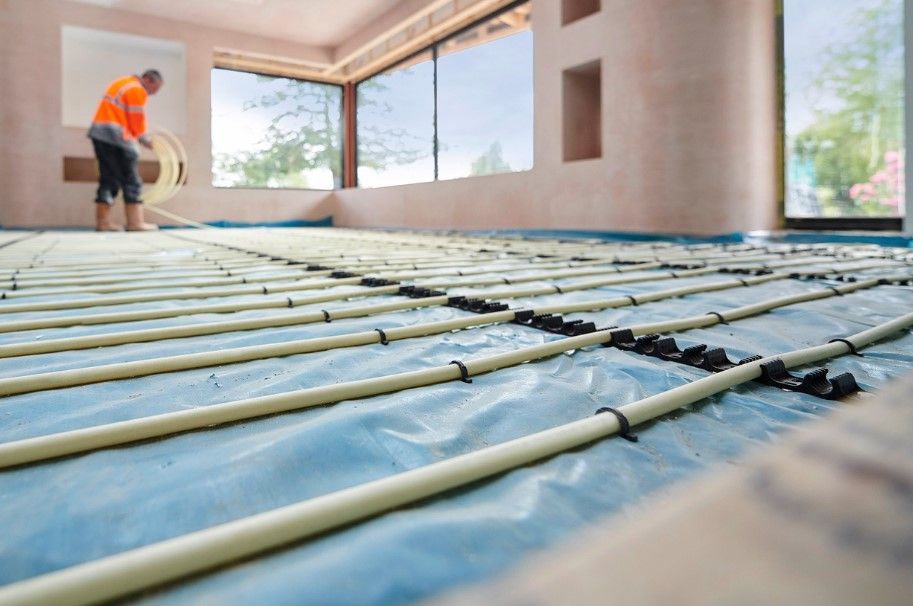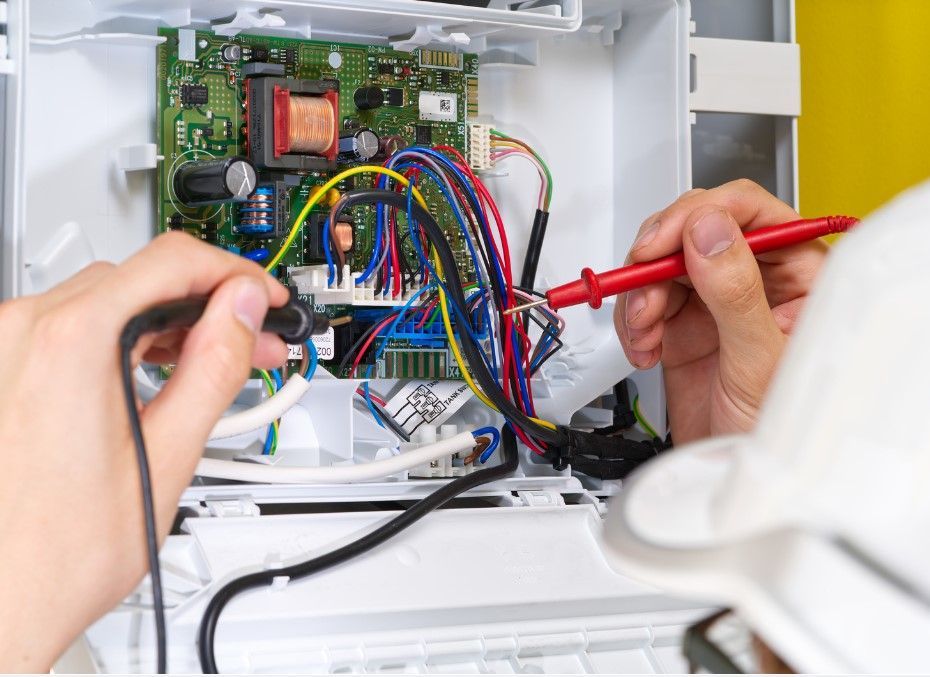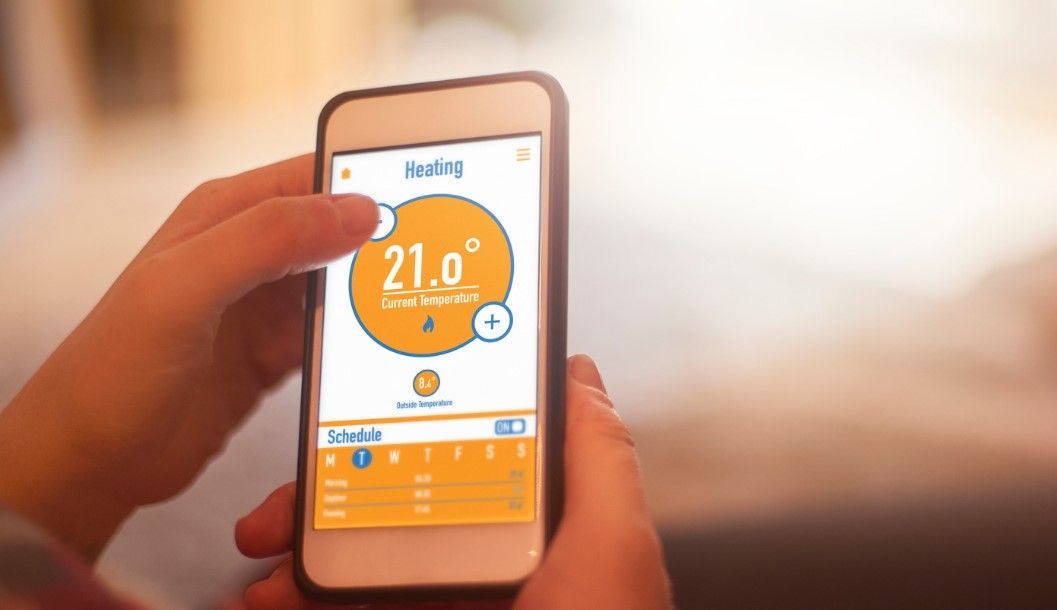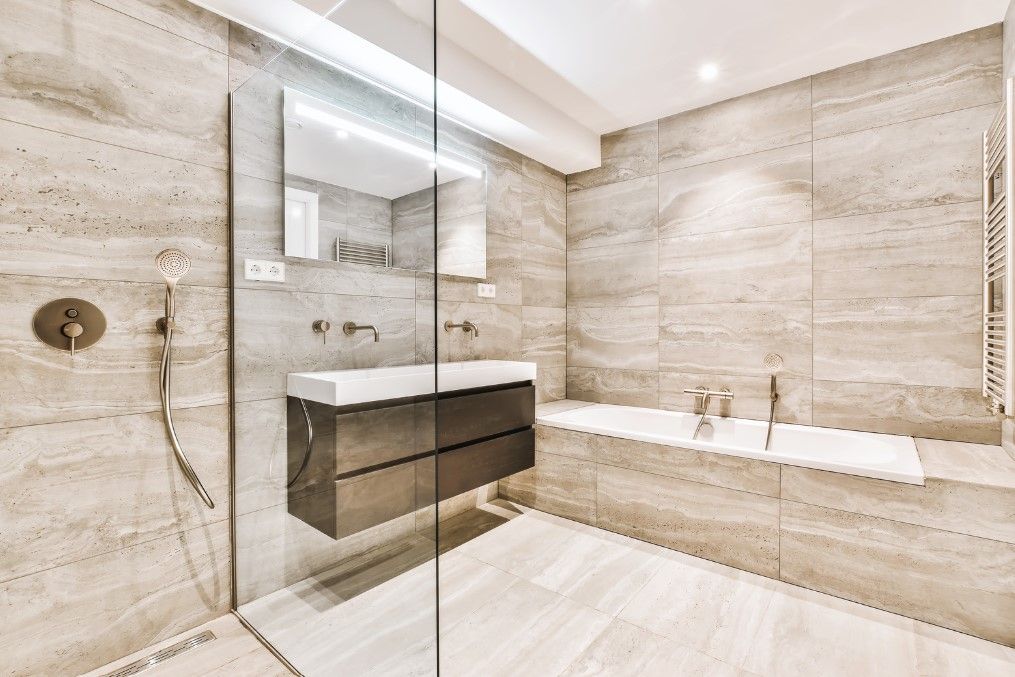Top 10 Plumbing Tips for Derby Homeowners: Expert Advice You Can't Afford to Miss!
Keeping on top of potential heating and water issues at home
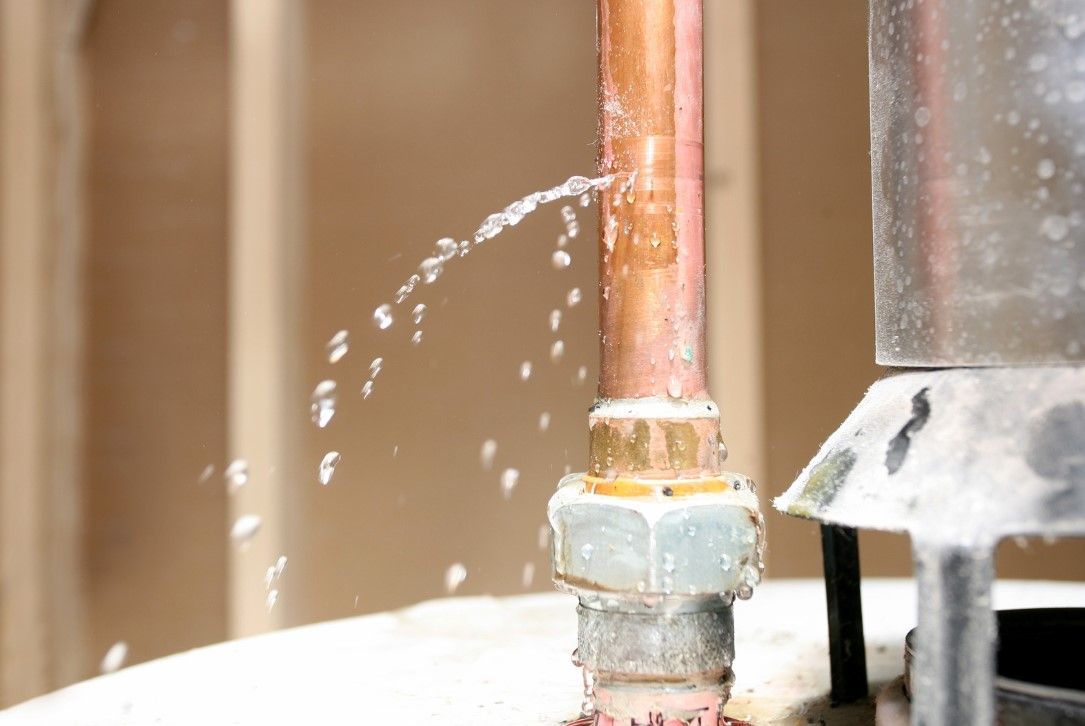
If you’re a homeowner in Derby, maintaining your plumbing system is essential to ensuring the comfort of your living space. Dealing with unexpected leaks or stubborn clogs can be a complex and costly affair, but it doesn’t have to be! With the right knowledge and a few handy tips, you can navigate common plumbing challenges and keep your home running smoothly. In this article, we’ll share the top 10 plumbing tips every Derby homeowner should know. From regular maintenance practices to insightful tricks that save you time and money, our expert advice will empower you to take control of your plumbing. Whether you’re a DIY enthusiast or prefer to leave repairs to the professionals, these practical tips will equip you with the insights you need to make informed decisions. Dive in and discover how simple actions can protect your home and enhance your plumbing experience!
Understanding Common Plumbing Issues in Derby Homes
Owning a home in Derby comes with its unique set of plumbing challenges. The city's homes, ranging from historic buildings to modern constructions, can exhibit a variety of plumbing issues due to their age and the materials used in their construction. Common problems include leaks, clogs, and water pressure issues. Understanding these issues is the first step in maintaining a healthy plumbing system.
Leaks are one of the most prevalent issues homeowners face. They can occur in pipes, faucets, and fixtures, often resulting from wear and tear or poor installation. Even small leaks can lead to significant water damage over time, causing structural damage and fostering mold growth. Identifying and repairing leaks early can save homeowners from costly repairs and high water bills.
Clogs are another frequent problem, typically caused by the buildup of debris such as hair, soap scum, food particles, and grease. They can occur in sinks, showers, and toilets, leading to slow drainage and, in severe cases, complete blockages. Regular maintenance and mindful usage can help prevent clogs, but knowing how to deal with them when they occur is essential for every homeowner.
Essential Tools Every Homeowner Should Have
To tackle common plumbing issues, it's crucial to have the right tools on hand. Equipping yourself with a basic plumbing toolkit can make a significant difference when minor problems arise. Essential tools include a plunger, pipe wrench, adjustable wrench, plumber's tape, and a drain snake.
A plunger is indispensable for clearing clogs in toilets and sinks. There are different types of plungers for each, so having both a flange plunger for toilets and a cup plunger for sinks is beneficial. Proper use of a plunger can save you from a call to the plumber and get your fixtures back in working order quickly.
A pipe wrench is essential for tightening and loosening pipes. Its adjustable jaws provide a strong grip on plumbing fixtures, making it easier to make secure connections and repairs. An adjustable wrench, on the other hand, is perfect for working on smaller nuts and bolts, offering versatility in various plumbing tasks. Plumber's tape, also known as Teflon tape, is used to seal pipe threads and prevent leaks. Wrapping it around the threads before connecting pipes can ensure a watertight fit. Lastly, a drain snake is a flexible tool that can reach deep into pipes to clear stubborn clogs, making it an invaluable addition to your toolkit.
Preventative Maintenance: Key to Avoiding Costly Repairs
Preventative maintenance is the cornerstone of a well-functioning plumbing system. Regular inspection and upkeep can help you catch potential issues before they become major problems. Simple actions like checking for leaks, inspecting pipe connections, and ensuring proper drainage can save you from expensive repairs down the line.
One of the most effective preventative measures is to regularly inspect your plumbing for leaks. Check under sinks, around toilets, and in basements for any signs of water damage or mold. Even a small drip can indicate a larger issue that needs attention. Additionally, inspect your pipes for corrosion or damage, especially if you live in an older home where pipes may be made of outdated materials.
Ensuring proper drainage is another critical aspect of preventative maintenance. Avoid pouring grease, coffee grounds, or other debris down your drains, as these can cause buildup and lead to clogs. Installing drain screens in sinks and showers can catch hair and other particles, preventing them from entering your plumbing system. Regularly cleaning these screens will help maintain proper drainage and reduce the risk of blockages.
How to Fix a Leaky Faucet: Step-by-Step Guide
A leaky faucet is not only annoying but can also waste a significant amount of water over time. Fixing a leaky faucet is a manageable task for most homeowners, and following a step-by-step guide can make the process straightforward. Before you begin, ensure you have the necessary tools: a wrench, screwdriver, replacement parts, and plumber's tape.
First, turn off the water supply to the faucet. This is typically done by closing the shut-off valves located under the sink. Once the water supply is off, open the faucet to drain any remaining water. This step is crucial to avoid water spilling out when you disassemble the faucet.
Next, remove the faucet handle. This usually involves unscrewing a set screw located under a decorative cap. Once the handle is off, you can access the faucet's internal components. The most common cause of a leak is a worn-out washer or O-ring. Remove the old washer or O-ring and replace it with a new one. Ensure the new part matches the old one in size and shape. Reassemble the faucet, turn the water supply back on, and test the faucet to ensure the leak is fixed. By following these steps, you can save water and avoid the frustration of a dripping faucet.
The Importance of Regular Drain Cleaning
Regular drain cleaning is essential to maintaining a healthy plumbing system. Over time, drains can become clogged with debris such as hair, soap scum, food particles, and grease. Regular cleaning prevents these materials from building up and causing blockages. There are several methods to clean drains effectively, from DIY solutions to professional services.
One of the simplest ways to keep drains clean is to use a mixture of baking soda and vinegar. Pour half a cup of baking soda down the drain, followed by half a cup of vinegar. Let the mixture sit for about 15 minutes, then flush the drain with hot water. This natural remedy can help break down buildup and keep your drains flowing smoothly.
For more stubborn clogs, consider using a drain snake. This tool can reach deep into pipes to remove blockages that can't be cleared with baking soda and vinegar. Feed the snake into the drain until you feel resistance, then twist and pull to dislodge the clog. Regular use of a drain snake can prevent major blockages and keep your plumbing system in good working order.
Winter Plumbing Tips: Protecting Your Pipes from Freezing
Winter can be a tough season for plumbing systems, especially in areas prone to freezing temperatures like Derby. Frozen pipes are a common issue that can lead to significant damage if not properly addressed. Taking steps to protect your pipes from freezing can save you from the hassle and expense of dealing with burst pipes.
One effective method to prevent freezing is to insulate your pipes. Pipe insulation is available at most hardware stores and is easy to install. Simply wrap the insulation around exposed pipes, especially those located in unheated areas such as basements, garages, and crawl spaces. This added layer of protection can help keep your pipes from freezing during cold weather.
Another important tip is to keep your home warm, even when you're not there. Set your thermostat to at least 55 degrees Fahrenheit to ensure your pipes stay warm enough to prevent freezing. Additionally, open cabinet doors under sinks to allow warm air to circulate around the pipes. If you're going to be away from home for an extended period, consider shutting off the main water supply and draining your pipes to prevent any water from freezing and causing damage.
When to Call a Professional Plumber
While many plumbing issues can be solved with DIY methods, there are times when it's best to call in a professional. Recognizing when a problem is beyond your expertise can save you time, money, and potential damage to your home. Here are some situations where calling a professional plumber is the best course of action.
If you're dealing with a major leak or burst pipe, it's essential to call a plumber immediately. These issues can cause significant water damage and require expert knowledge to fix properly. A professional plumber can quickly assess the situation, make the necessary repairs, and help you prevent future problems.
Another situation that warrants a professional's help is a persistent clog that you can't clear with a plunger or drain snake. Stubborn clogs can indicate a more serious issue, such as a blockage deep within your plumbing system or even a problem with your sewer line. A plumber has the tools and expertise to diagnose and fix these issues, ensuring your plumbing system is back to normal.
Finally, if you're planning a major renovation or installation, such as a new bathroom or kitchen, it's wise to hire a professional plumber. They can ensure that all plumbing work is done to code and that your new fixtures are installed correctly. This not only guarantees the safety and functionality of your new space but also adds value to your home.
Eco-Friendly Plumbing Solutions for Sustainable Living
As environmental awareness grows, many homeowners are seeking eco-friendly plumbing solutions to reduce their ecological footprint and save on utility bills. There are several ways to make your plumbing system more sustainable, from water-saving fixtures to energy-efficient appliances.
One of the simplest ways to conserve water is by installing low-flow fixtures. Low-flow showerheads, faucets, and toilets use less water without sacrificing performance. For instance, low-flow showerheads can reduce water usage by up to 50%, resulting in significant savings on your water bill. Similarly, dual-flush toilets offer two flush options, allowing you to use less water for liquid waste and more for solid waste.
Energy-efficient appliances are another great way to create a more sustainable home. Tankless water heaters, for example, heat water on demand rather than storing it in a tank, which can save energy and reduce your utility bills. These units are not only more efficient but also take up less space, making them a practical choice for many homes.
In addition to installing water-saving fixtures and energy-efficient appliances, consider using environmentally friendly plumbing materials. PEX piping, for instance, is a durable and flexible alternative to traditional copper pipes. It requires less energy to produce and is less likely to corrode, making it a more sustainable option for your home's plumbing system.
Upgrading Your Plumbing: Modern Fixtures and Technologies
Upgrading your plumbing fixtures and incorporating modern technologies can enhance the functionality and efficiency of your home. From smart faucets to advanced leak detection systems, there are numerous ways to modernize your plumbing and improve your overall living experience.
Smart faucets are a popular upgrade for many homeowners. These fixtures can be controlled via smartphone apps, allowing you to adjust water temperature and flow with ease. Some models even feature touchless operation, which helps reduce the spread of germs and conserves water by automatically shutting off when not in use. Smart faucets can be a convenient and hygienic addition to any kitchen or bathroom.
Leak detection systems are another innovative technology that can protect your home from water damage. These systems use sensors to monitor your plumbing for leaks and alert you if a problem is detected. Some advanced models can even shut off your water supply automatically to prevent damage. By investing in a leak detection system, you can catch issues early and avoid costly repairs.
In addition to smart faucets and leak detection systems, consider upgrading your water heater to a more efficient model. Tankless water heaters, as mentioned earlier, provide hot water on demand and can save energy compared to traditional tank-style heaters. Alternatively, hybrid water heaters combine the benefits of both tank and tankless systems, offering increased efficiency and a consistent supply of hot water.
Conclusion: Keeping Your Plumbing in Top Shape
Maintaining your home's plumbing system is essential for ensuring a comfortable and efficient living environment. By understanding common plumbing issues, equipping yourself with the right tools, and implementing preventative maintenance practices, you can avoid costly repairs and keep your plumbing in top shape. Whether you're tackling a leaky faucet or upgrading to modern fixtures, the tips and advice shared in this article will empower you to take control of your plumbing.
Remember, while many tasks can be handled with DIY methods, there are times when it's best to call in a professional plumber. Recognising when to seek expert help can save you time, money, and potential damage to your home. Additionally, incorporating eco-friendly and modern plumbing solutions can enhance your home's efficiency and sustainability, benefiting both your wallet and the environment.
By following these top 10 plumbing tips, Derby homeowners can ensure their plumbing systems remain reliable and efficient. Regular maintenance, mindful usage, and staying informed about the latest technologies and best practices will help you protect your home and enjoy a stress-free plumbing experience.

